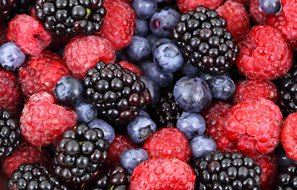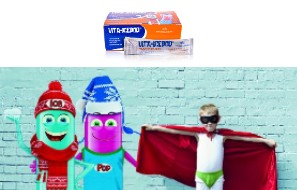Cosmetics with probiotics have become increasingly popular in recent years. Probiotics are live microorganisms that are believed to have health benefits when consumed or applied topically. In cosmetics, probiotics are often used to promote a healthy microbiome on the skin, which can help to improve overall skin health.
Some of the benefits that cosmetics with probiotics may offer include:
- Improved hydration: probiotics can help to improve skin hydration by promoting the growth of healthy bacteria on the skin.
- Reduced inflammation: probiotics have been shown to have anti-inflammatory properties, which can help to soothe and calm irritated skin.
- Improved barrier function: probiotics can help to strengthen the skin’s natural barrier function, which can help to protect against environmental stressors.
- Anti-aging effects: probiotics may also have anti-aging effects by helping to stimulate collagen production and improve overall skin elasticity.
Some examples of cosmetics with probiotics include probiotic-infused moisturizers, serums, and face masks.
Microbiome and microbiota
The terms microbiome and microbiota are often used interchangeably, but they refer to slightly different concepts.
- The microbiota (or microbiote) refers to the collection of microorganisms, such as bacteria, viruses, fungi, and archaea, that live in and on the human body. The microbiota can be found in various parts of the body, including the skin, mouth, gut, and reproductive tract.
- On the other hand, the microbiome refers to the collective genetic material of all the microorganisms that make up the microbiota. This includes not only the genetic material of the microorganisms themselves but also the genetic material that they transfer to each other.
The microbiota and microbiome are both important for maintaining human health. They play a crucial role in digestion, metabolism, and immune function, among other things. Imbalances or disruptions in the microbiota and microbiome have been linked to a variety of health problems, including obesity, inflammatory bowel disease and even mental health disorders like depression and anxiety.
Research into the microbiome and microbiota is still ongoing, and scientists are only beginning to understand the full extent of their importance for human health. However, it is clear that taking care of our microbiota and microbiome is important for overall health and well-being.
Which ingredients contain cosmetics with probiotics?
Cosmetics containing probiotics may contain a variety of different ingredients, depending on the specific product and its intended use. Some of the most common ingredients found in cosmetics containing probiotics include:
- Probiotic strains: these are live microorganisms that are added to the product to help improve the health of the skin. Common probiotic strains used in cosmetics include Lactobacillus and Bifidobacterium.
- Prebiotics: prebiotics are non-digestible food ingredients that help to feed and support the growth of beneficial bacteria on the skin. Common prebiotic ingredients used in cosmetics include inulin, fructooligosaccharides (FOS), and galactooligosaccharides (GOS).
- Hydrating ingredients: many probiotic cosmetics also contain hydrating ingredients like glycerin, hyaluronic acid, and aloe vera to help keep the skin moisturized and healthy.
- Antioxidants: some probiotic cosmetics also contain antioxidants like vitamin C, vitamin E, and green tea extract to help protect the skin against damage from free radicals.
- Soothing ingredients: probiotic cosmetics may also contain soothing ingredients like chamomile extract and oat extract to help calm and soothe irritated skin.




